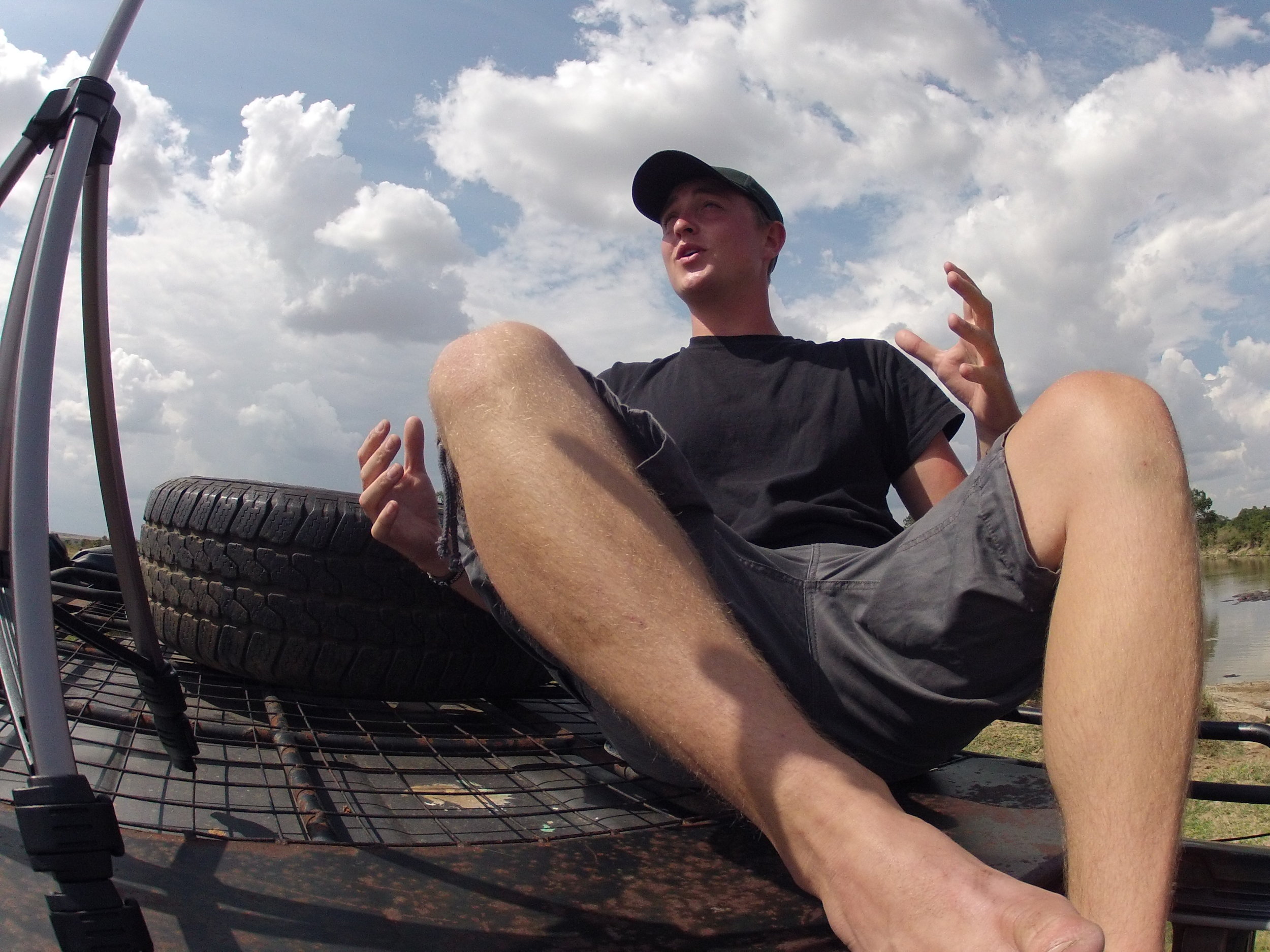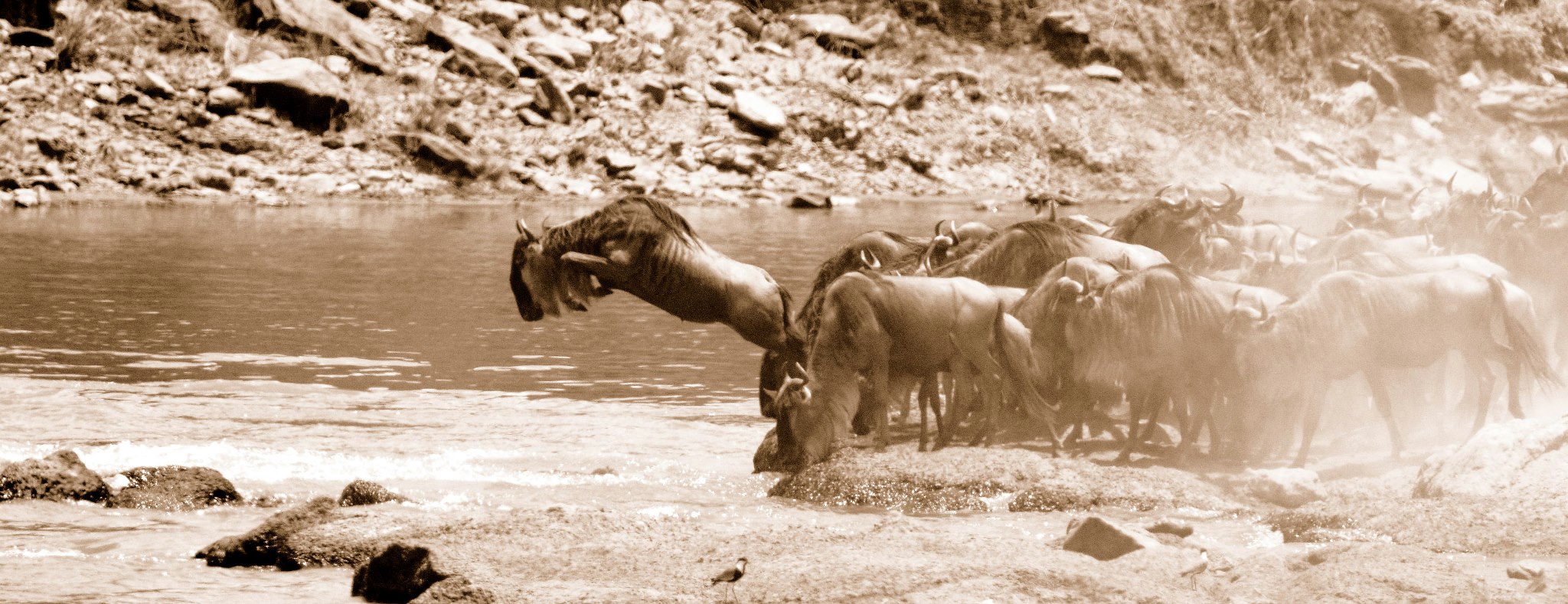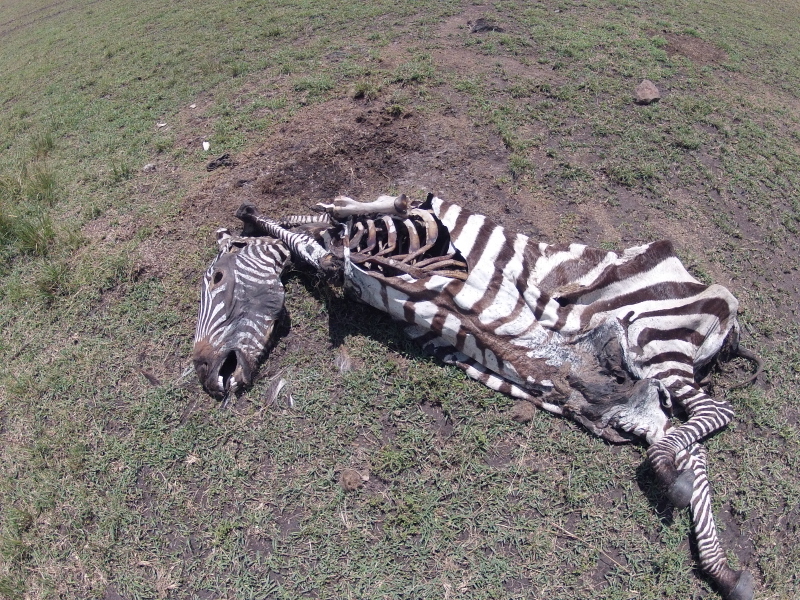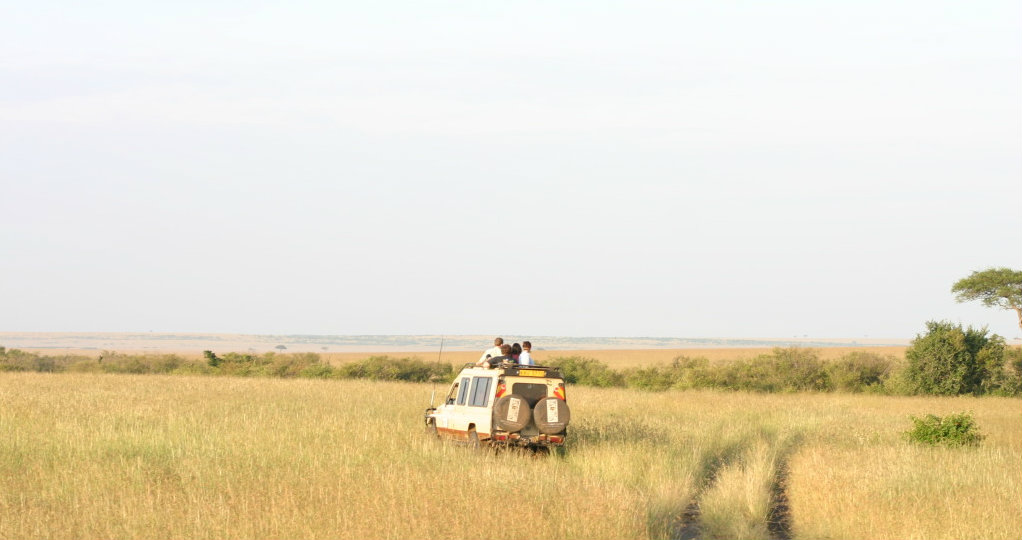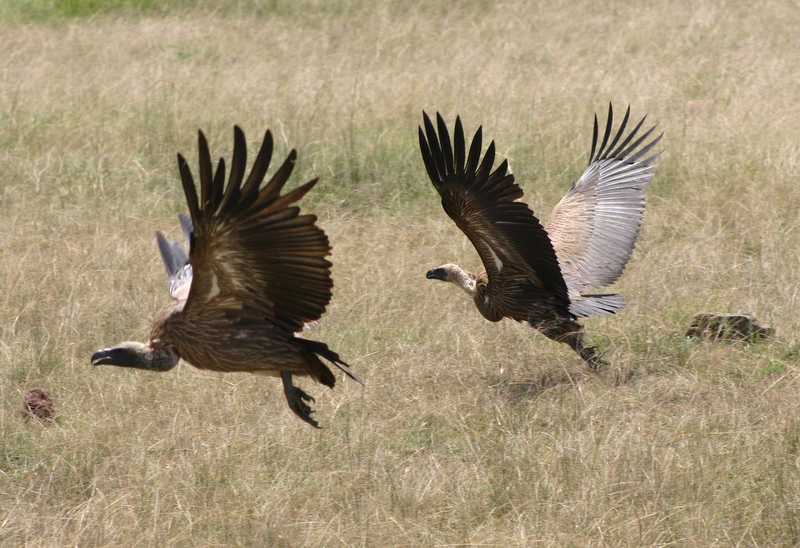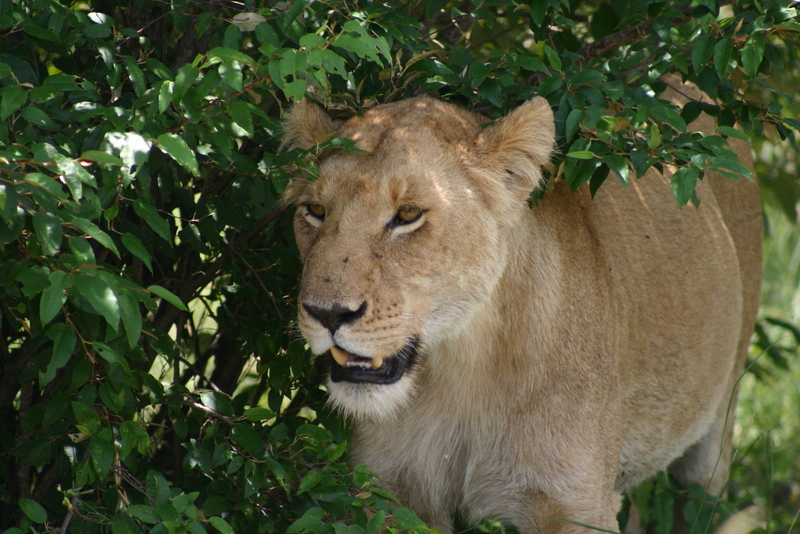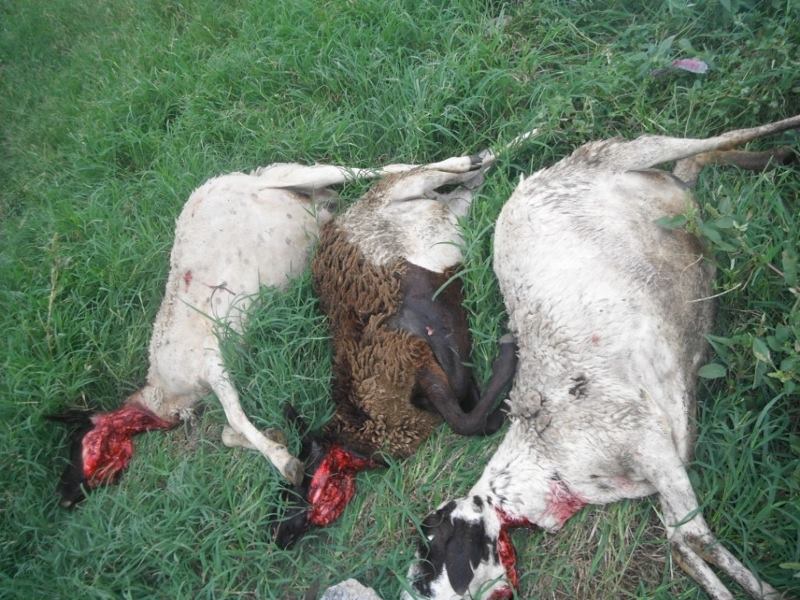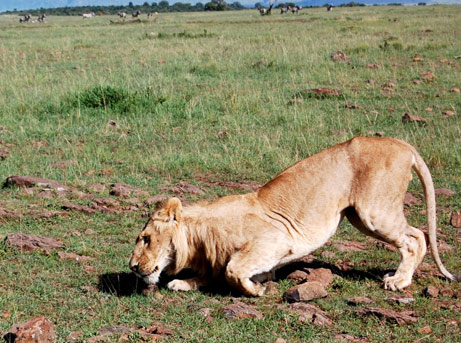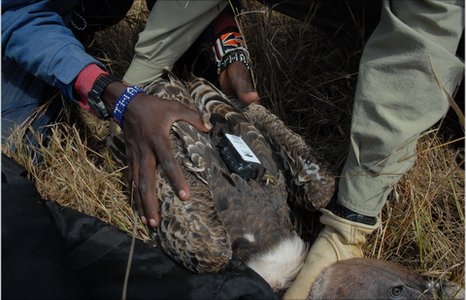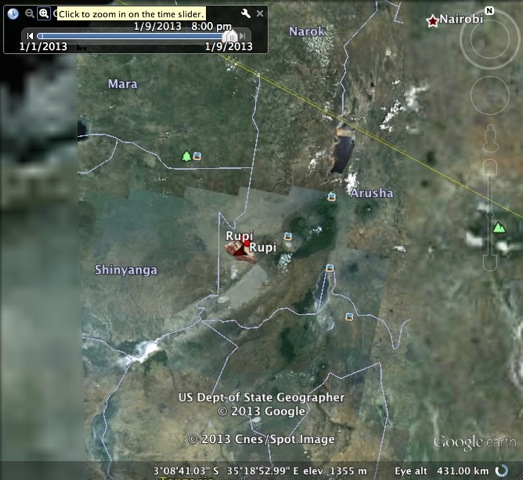 It may come as a shock to many on my latest blog feature. Why vultures? And why is it important to save them? I have very minimal experience working with them. (Matter-of-fact I don't necessarily know if catching one qualifies as much experience.) There is just something so incredibly unique and intriguing about them. Another reason I'm probably so partial to vultures is because they are the reason I was able to travel to Africa not once, but twice, and document their plight. I hope you enjoy these personal photos (Along with a few taken by my mentor in Kenya, Dr. Munir Virani, the Africa Programs Director for the Peregrine Fund). I also hope by the end of this blog you will have a greater appreciation of one of the world's most beneficial creatures. Enjoy...
It may come as a shock to many on my latest blog feature. Why vultures? And why is it important to save them? I have very minimal experience working with them. (Matter-of-fact I don't necessarily know if catching one qualifies as much experience.) There is just something so incredibly unique and intriguing about them. Another reason I'm probably so partial to vultures is because they are the reason I was able to travel to Africa not once, but twice, and document their plight. I hope you enjoy these personal photos (Along with a few taken by my mentor in Kenya, Dr. Munir Virani, the Africa Programs Director for the Peregrine Fund). I also hope by the end of this blog you will have a greater appreciation of one of the world's most beneficial creatures. Enjoy...
I flew back to Kenya in August/September 2012 to document one of the most magnificent spectacles on earth, the Great Migration.
Over a million wildebeest and zebra make the long journey from the Serengeti in Tanzania to the Masai Mara in Kenya in search of fresh grasses. As you can expect along the way there are several tragedies; thousands of animals die from predation, disease, and pure exhaustion. This is where the vultures come in.
According to scientists, vultures consume 70% of all the available meat in the Mara/Serengeti ecosystem. Could you imagine the place without them?
There would be carcasses like this everywhere. According to Dr. Virani, tourists who visit would have to walk around in face masks to avoid the stench.
Global tourism is a multi-billion dollar industry, and Africa ranks among the top visited places in the world. Ecotourism would collapse if tourists were unable to enjoy a safari experience because of the mass carcass buildup and spread of disease.
So what's going on? According to Dr. Virani and his associates, East African Vultures have declined by over 60% in just the last 30 years, making them one of the most threatened group of vertebrates in the world. The answer: Poisoning.
Vultures all across the African continent are being poisoned at an alarming rate by a toxic pesticide called furadan. Oddly enough vultures are not necessarily the species being targeted, large land predators like lions and hyenas are. (Photo courtesy of raptorpolitics.or.uk.)
Human-and-animal-conflict is a major problem in Africa. With humans encroaching on once undisturbed habitat, encounters with wildlife are inevitable. Animals don't know boundaries. Once they leave the protection of the reserves and national parks, there is an increased risk of conflict with humans.
Sometimes they don't even have to leave the reserves to run into people. Hence the picture above of the Maasai illegally grazing their cattle in the Masai Mara National Reserve.
Occasionally a lion, hyena, or leopard will attack and kill livestock from a local pastoralist. CAUTION: The next few images might be disturbing for some viewers.
In retaliation the farmers will lace the carcass of a dead goat or cow with the cheap over-the-counter pesticide furadan. It's odorless, colorless, and kills everything it comes in contact with.
This includes the predator, the scavengers, and even the flies that land on the laced carcass. One laced carcass can kill up to 150 vultures at a time. (Photo courtesy of news.nationalgeographic.com)
So what's being done? Dr. Virani runs the Vulture Research Project in the Masai Mara where he conducts surveys and live captures to track the vulture's movements across the East African Plains.
I was thrilled to be able to help and document the capture, which involves finding deceased wildebeest to help attract the vultures. I never thought in my life I would be so close to a Wildebeest's behind!
Once captured, Dr. Virani and his team attach transmitters to individual birds to track their home ranges.
One of the birds we caught in Kenya, which we nicknamed "Rupi", was found just weeks later in Southern Tanzania. The GPS tracking units show that these birds have HUGE home ranges that extend well outside of the reserves.
Another important factor of vulture conservation is educating local communities about their importance to the ecosystem. Every first Saturday in September is "Vulture Awareness Day." This day celebrated all around the globe, is dedicated to vultures using various festivities to celebrate their importance.
I'd like to leave you on this note: I remember asking Dr. Virani what the most important message he'd like people to leave with once they hear about the plight of vultures. He said simply, "Tell your family, your neighbors, your friends, about vultures. Spread the message about how important they are to the ecosystem. Get the word out." I couldn't agree more. I hope that after reading this you have a greater appreciation of vultures. And hope you spread the message. We need these majestic and beneficial birds for generations to come.
I also encourage you to check out Dr. Virani's short presentation at a recent TED conference on the subject.


